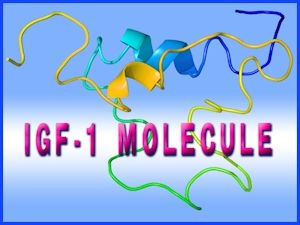Introduction to Trauma and Testosterone
Trauma, whether physical or psychological, can have profound effects on the human body, including its hormonal balance. In American males, one significant concern is the impact of trauma on testosterone levels, which can lead to a condition known as low testosterone or hypogonadism. Understanding this relationship is crucial for addressing the health and well-being of affected individuals.
The Physiology of Testosterone
Testosterone, primarily produced in the testes, plays a vital role in male development and health. It influences muscle mass, bone density, fat distribution, red blood cell production, and even mood and cognitive function. When testosterone levels drop below normal, men may experience symptoms such as decreased libido, erectile dysfunction, fatigue, and depression.
Trauma's Effect on the Endocrine System
Trauma can disrupt the delicate balance of the endocrine system, which regulates hormone production. Acute or chronic stress from traumatic events can trigger the release of cortisol, a stress hormone that can inhibit the production of testosterone. This physiological response is part of the body's fight-or-flight mechanism, but prolonged exposure to high cortisol levels can lead to sustained reductions in testosterone.
Types of Trauma and Their Impact
Trauma comes in various forms, each with potential effects on testosterone levels. Physical trauma, such as injuries or surgeries, can directly affect the testes or the hypothalamic-pituitary-gonadal (HPG) axis, which controls testosterone production. Psychological trauma, including post-traumatic stress disorder (PTSD), can also lead to hormonal imbalances through chronic stress and altered brain function.
Case Studies and Research Findings
Research has shown a clear correlation between trauma and decreased testosterone levels. For instance, studies on veterans with PTSD have found significantly lower testosterone levels compared to those without the disorder. Similarly, men who have experienced severe physical trauma, such as spinal cord injuries, often exhibit reduced testosterone levels, which can persist long after the initial injury.
The Consequences of Low Testosterone
Low testosterone can have far-reaching effects on a man's health and quality of life. Beyond the immediate symptoms, it can increase the risk of developing conditions such as osteoporosis, cardiovascular disease, and metabolic syndrome. Recognizing and addressing low testosterone early can help mitigate these risks and improve overall health outcomes.
Diagnosis and Treatment Options
Diagnosing low testosterone involves a thorough medical evaluation, including blood tests to measure testosterone levels. If low testosterone is confirmed, treatment options may include testosterone replacement therapy (TRT), lifestyle changes, and addressing underlying causes such as trauma. For men with trauma-related low testosterone, a multidisciplinary approach that includes psychological support and stress management can be particularly beneficial.
The Role of Lifestyle and Preventive Measures
While not all trauma can be prevented, certain lifestyle factors can help maintain healthy testosterone levels. Regular exercise, a balanced diet, adequate sleep, and stress reduction techniques such as meditation or yoga can support overall hormonal health. For men at risk of trauma, such as those in high-stress occupations or with a history of mental health issues, proactive measures to manage stress and seek support can be crucial.
Conclusion: A Holistic Approach to Managing Trauma and Testosterone
The impact of trauma on testosterone levels in American males is a complex issue that requires a comprehensive approach to diagnosis and treatment. By understanding the physiological mechanisms at play and addressing both the physical and psychological aspects of trauma, healthcare providers can better support men in maintaining healthy testosterone levels and improving their quality of life. As research continues to uncover the intricacies of this relationship, it is essential for men to stay informed and proactive about their health.
Contact Us For A Fast And Professional Response

- Environmental Toxins and Declining Testosterone Levels in American Men: A Growing Concern [Last Updated On: March 10th, 2025] [Originally Added On: March 10th, 2025]
- Chronic Illness and Low Testosterone in American Males: Impacts and Management Strategies [Last Updated On: March 17th, 2025] [Originally Added On: March 17th, 2025]
- Managing Low Testosterone in Aging Men: Symptoms, Causes, and Treatment Options [Last Updated On: March 19th, 2025] [Originally Added On: March 19th, 2025]
- Low Testosterone's Impact on Cognitive Function in American Men: Interventions and Insights [Last Updated On: March 19th, 2025] [Originally Added On: March 19th, 2025]
- Low Testosterone and Mood Disorders in American Men: A Comprehensive Overview [Last Updated On: March 19th, 2025] [Originally Added On: March 19th, 2025]
- Low Testosterone in American Males: Symptoms, Causes, and Management Strategies [Last Updated On: March 19th, 2025] [Originally Added On: March 19th, 2025]
- Vitamin D's Role in Managing Low Testosterone in American Men: Insights and Strategies [Last Updated On: March 19th, 2025] [Originally Added On: March 19th, 2025]
- Low Testosterone's Rising Economic Impact on American Healthcare [Last Updated On: March 19th, 2025] [Originally Added On: March 19th, 2025]
- Alcohol Consumption and Its Effects on Testosterone Levels in Men [Last Updated On: March 20th, 2025] [Originally Added On: March 20th, 2025]
- Low Testosterone in American Men: Symptoms, Diagnosis, and Treatment Options [Last Updated On: March 20th, 2025] [Originally Added On: March 20th, 2025]
- Low Testosterone: Impacts on Prostate Health and Cancer Risk in American Men [Last Updated On: March 20th, 2025] [Originally Added On: March 20th, 2025]
- Low Testosterone's Impact on Muscle Mass and Strength in American Males [Last Updated On: March 21st, 2025] [Originally Added On: March 21st, 2025]
- Low Testosterone's Impact on Skin Health in American Men: Causes and Management [Last Updated On: March 22nd, 2025] [Originally Added On: March 22nd, 2025]
- Smoking's Impact on Testosterone Levels in American Men: Health Risks and Quitting Strategies [Last Updated On: March 22nd, 2025] [Originally Added On: March 22nd, 2025]
- Low Testosterone and Diabetes: Managing Dual Health Challenges in American Males [Last Updated On: March 22nd, 2025] [Originally Added On: March 22nd, 2025]
- Low Testosterone's Impact on Immune Function in American Males: Insights and Management [Last Updated On: March 23rd, 2025] [Originally Added On: March 23rd, 2025]
- Common Medications Linked to Low Testosterone in American Men: Insights and Management [Last Updated On: March 23rd, 2025] [Originally Added On: March 23rd, 2025]
- Zinc's Role in Boosting Testosterone Levels in American Men [Last Updated On: March 23rd, 2025] [Originally Added On: March 23rd, 2025]
- Shift Work's Impact on Testosterone Levels in American Men: Insights and Strategies [Last Updated On: March 23rd, 2025] [Originally Added On: March 23rd, 2025]
- Low Testosterone and Osteoporosis Risk in American Males: Insights and Strategies [Last Updated On: March 23rd, 2025] [Originally Added On: March 23rd, 2025]
- Low Testosterone and Heart Disease Risk in American Men: Current Insights [Last Updated On: March 23rd, 2025] [Originally Added On: March 23rd, 2025]
- Weight Loss Boosts Testosterone: A Vital Strategy for American Males [Last Updated On: March 23rd, 2025] [Originally Added On: March 23rd, 2025]
- Low Testosterone: Symptoms, Impacts, and Treatment Options for American Men [Last Updated On: March 24th, 2025] [Originally Added On: March 24th, 2025]
- Low Testosterone in Aging Men: Symptoms, Diagnosis, and Treatment Options [Last Updated On: March 24th, 2025] [Originally Added On: March 24th, 2025]
- Chronic Stress and Testosterone: Impacts and Management Strategies for American Men [Last Updated On: March 24th, 2025] [Originally Added On: March 24th, 2025]
- Liver Health's Crucial Role in Managing Testosterone Levels for American Males [Last Updated On: March 24th, 2025] [Originally Added On: March 24th, 2025]
- Chronic Inflammation's Impact on Testosterone Levels in American Males: A Comprehensive Analysis [Last Updated On: March 25th, 2025] [Originally Added On: March 25th, 2025]
- Low Testosterone Linked to Increased Autoimmune Disease Risk in American Men [Last Updated On: March 25th, 2025] [Originally Added On: March 25th, 2025]
- Low Testosterone and Hair Loss in American Males: Mechanisms, Impacts, and Interventions [Last Updated On: March 25th, 2025] [Originally Added On: March 25th, 2025]
- Low Testosterone in American Males: Impact on Libido and Quality of Life [Last Updated On: March 25th, 2025] [Originally Added On: March 25th, 2025]
- Dietary Impact on Testosterone: Insights for American Men's Hormonal Health [Last Updated On: March 25th, 2025] [Originally Added On: March 25th, 2025]
- Herbal Supplements for Low Testosterone: Benefits, Limitations, and Key Herbs Reviewed [Last Updated On: March 25th, 2025] [Originally Added On: March 25th, 2025]
- Nutritional Deficiencies and Low Testosterone in American Males: Insights and Strategies [Last Updated On: March 26th, 2025] [Originally Added On: March 26th, 2025]
- Low Testosterone's Impact on Emotional Wellbeing in American Males: Symptoms and Solutions [Last Updated On: March 26th, 2025] [Originally Added On: March 26th, 2025]
- Low Testosterone and Depression in American Men: Links, Mechanisms, and Treatment Options [Last Updated On: March 26th, 2025] [Originally Added On: March 26th, 2025]
- Low Testosterone and Anemia: Impacts and Management in American Men [Last Updated On: March 26th, 2025] [Originally Added On: March 26th, 2025]
- Low Testosterone's Impact on American Males: Body Composition and Health Challenges [Last Updated On: March 26th, 2025] [Originally Added On: March 26th, 2025]
- Low Testosterone Linked to Dermatological Issues in American Men: A Comprehensive Overview [Last Updated On: March 26th, 2025] [Originally Added On: March 26th, 2025]
- Exercise Boosts Testosterone: A Guide for American Men [Last Updated On: March 26th, 2025] [Originally Added On: March 26th, 2025]
- Low Testosterone and Metabolic Syndrome: Risks and Prevention in American Men [Last Updated On: March 26th, 2025] [Originally Added On: March 26th, 2025]
- Genetic Factors Influencing Low Testosterone in American Males: A Comprehensive Overview [Last Updated On: March 27th, 2025] [Originally Added On: March 27th, 2025]
- Low Testosterone Linked to Neurological Risks in American Men: Implications and Interventions [Last Updated On: March 27th, 2025] [Originally Added On: March 27th, 2025]
- Low Testosterone and Thyroid Disorders: Impact and Management in American Men [Last Updated On: March 27th, 2025] [Originally Added On: March 27th, 2025]
- Sleep Apnea's Impact on Testosterone Levels in American Males: A Comprehensive Analysis [Last Updated On: March 27th, 2025] [Originally Added On: March 27th, 2025]
- Low Testosterone Linked to Increased Kidney Disease Risk in American Men [Last Updated On: March 27th, 2025] [Originally Added On: March 27th, 2025]
- Hormonal Imbalance and Low Testosterone: Causes, Symptoms, and Treatment in American Males [Last Updated On: March 28th, 2025] [Originally Added On: March 28th, 2025]
- Low Testosterone and Insulin Resistance: Impact and Management in American Men [Last Updated On: March 28th, 2025] [Originally Added On: March 28th, 2025]
- Environmental Estrogens and Their Impact on Testosterone Levels in American Males [Last Updated On: March 28th, 2025] [Originally Added On: March 28th, 2025]
- Chronic Pain's Impact on Testosterone Levels in American Males: Management Strategies [Last Updated On: March 28th, 2025] [Originally Added On: March 28th, 2025]
- Dental Health's Role in Managing Low Testosterone in American Males [Last Updated On: March 28th, 2025] [Originally Added On: March 28th, 2025]
- Gut Health and Testosterone: Optimizing GI Function for Hormonal Balance in American Men [Last Updated On: March 29th, 2025] [Originally Added On: March 29th, 2025]
- Respiratory Health's Impact on Testosterone Levels in American Males [Last Updated On: March 30th, 2025] [Originally Added On: March 30th, 2025]
- ENT Health's Crucial Role in Managing Testosterone Levels in American Males [Last Updated On: April 1st, 2025] [Originally Added On: April 1st, 2025]
- Low Testosterone's Impact on Musculoskeletal Health in American Men: Risks and Interventions [Last Updated On: April 2nd, 2025] [Originally Added On: April 2nd, 2025]
- Low Testosterone Linked to Eye Disorders in American Men: Emerging Evidence and Implications [Last Updated On: April 3rd, 2025] [Originally Added On: April 3rd, 2025]
- Reproductive Health and Testosterone: Impacts and Management in American Males [Last Updated On: April 4th, 2025] [Originally Added On: April 4th, 2025]
- Low Testosterone Levels Increase Infectious Disease Risk in American Men: Current Insights [Last Updated On: April 6th, 2025] [Originally Added On: April 6th, 2025]
- Immunological Health's Impact on Testosterone Levels in American Males: A Comprehensive Analysis [Last Updated On: April 6th, 2025] [Originally Added On: April 6th, 2025]
- Low Testosterone and Urological Health Risks in American Men: Detection and Management [Last Updated On: April 7th, 2025] [Originally Added On: April 7th, 2025]
- Testosterone and Endocrine Health: Diagnosis, Treatment, and Monitoring in American Males [Last Updated On: April 7th, 2025] [Originally Added On: April 7th, 2025]
- Cancer's Impact on Testosterone Levels in American Men: Causes and Management Strategies [Last Updated On: April 8th, 2025] [Originally Added On: April 8th, 2025]
- Low Testosterone Linked to Increased Risk of Hematological Disorders in American Men [Last Updated On: April 10th, 2025] [Originally Added On: April 10th, 2025]
- Low Testosterone Linked to Increased Psychiatric Disorder Risk in American Men [Last Updated On: April 10th, 2025] [Originally Added On: April 10th, 2025]
- Low Testosterone in American Men: Impacts on Surgical Complications and Mitigation Strategies [Last Updated On: April 11th, 2025] [Originally Added On: April 11th, 2025]
- Rheumatological Health and Low Testosterone Management in American Males: Strategies and Insights [Last Updated On: April 12th, 2025] [Originally Added On: April 12th, 2025]

















